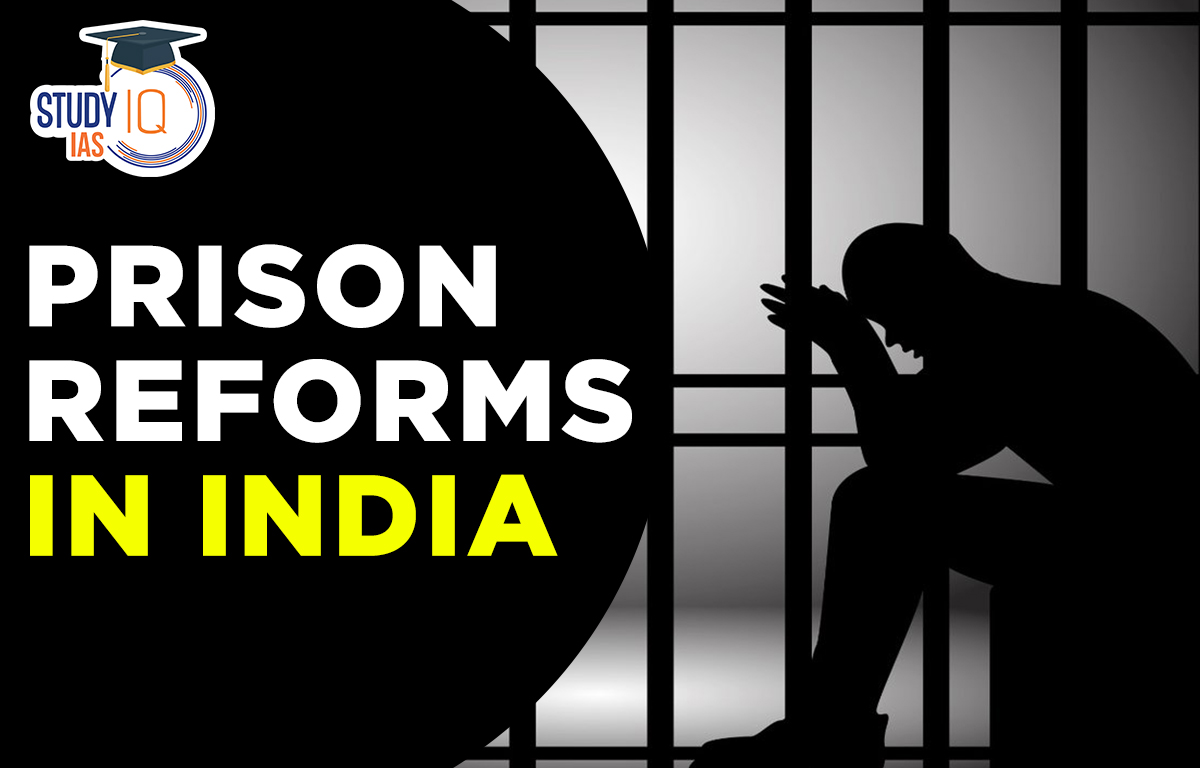Table of Contents
India’s prison system, which plays a crucial role in the criminal justice process, is facing numerous challenges, including overcrowding, undertrial prisoners, poor infrastructure, and human rights violations. To address these pressing issues and improve the living conditions of those incarcerated, the government has introduced the ‘Support for Prisoners’ Scheme. This initiative aims to provide financial assistance to poor prisoners who are unable to pay fines or afford bail, helping them secure release and ease prison overcrowding.
In this detailed SEO article, we will explore the ‘Support for Prisoners’ Scheme, the state of prison governance in India, the need for reforms, and the various initiatives aimed at improving the conditions of Indian prisons.
What is the ‘Support for Prisoners’ Scheme?
The ‘Support for Prisoners’ Scheme is a groundbreaking initiative launched by the Indian government with the objective of offering financial aid to prisoners who are unable to afford bail or fines due to financial constraints. The scheme aims to help decongest India’s overcrowded prisons and ensure that deserving prisoners can access relief even if they are financially disadvantaged.
Key Features of the Scheme
- Financial Assistance to States: Under this scheme, the Centre will provide financial support to state governments to assist prisoners who are unable to pay fines or secure bail due to financial incapacity.
- Technology-Driven Solutions: To streamline the process and ensure transparency, technology will be leveraged to monitor and facilitate the disbursement of funds directly to the beneficiaries.
- Strengthening Legal Aid: The scheme focuses on enhancing the capacity of District Legal Services Authorities to ensure that poor prisoners receive free legal aid and representation, thereby improving access to justice.
- Decongesting Prisons: The overarching goal of the scheme is to ease the pressure on India’s overcrowded prisons by helping poor prisoners who are stuck due to their inability to pay fines or meet bail requirements.
- Reducing Undertrials: A significant portion of the beneficiaries will be undertrials—prisoners who have not yet been convicted but are held due to pending trials. This will address a critical issue in the Indian prison system, where undertrials constitute a large proportion of the prison population.
Current State of Prison Governance in India
India’s prisons have long been marred by issues such as overcrowding, lack of proper facilities, inadequate staffing, and outdated management practices. Let’s take a closer look at the current state of prison governance and the challenges faced by the system.
Overcrowding in Prisons
According to the Prison Statistics 2021, Indian prisons are operating at an average occupancy rate of 130%, far exceeding their capacity. Overcrowding leads to severe resource constraints and affects the quality of living conditions for prisoners, including their access to food, healthcare, and sanitation.
Undertrials and Their Impact
A shocking 77% of prisoners in India are undertrials—individuals who have been arrested but not yet convicted. The Justice India Report 2022 highlights that delays in the judicial process lead to a large number of individuals languishing in jail for extended periods, often influencing them to become entrenched in criminal activity.
Custodial Violence and Deaths
Custodial torture and deaths remain critical issues in India’s prison system. The National Human Rights Commission (NHRC) reports that, on average, five individuals died daily in judicial custody over the past decade, with many of these deaths being linked to police brutality.
Infrastructure and Staff Shortages
Indian prisons suffer from severe staff shortages, with at least 33% of positions vacant, particularly at the officer and correctional staff levels. This shortage exacerbates the challenges of managing overcrowded facilities and performing correctional activities.
Moreover, prisons across India are plagued with inadequate infrastructure, including poor sanitation, substandard health facilities, and overcrowded cells. Many prisons lack sufficient resources to maintain hygiene, leading to the spread of diseases such as jaundice and hepatitis.
Gender-Specific Issues
Female prisoners in India face unique challenges. These include insufficient female staff, inadequate sanitation facilities, and heightened vulnerability to custodial sexual abuse. As a result, there is a growing call for gender-sensitive reforms in the prison system.
Lack of Access to Legal Aid
One of the biggest barriers to securing justice for prisoners, especially undertrials, is the lack of access to legal representation. Many poor individuals are forced to remain in prison due to their inability to pay for legal services. The ‘Support for Prisoners’ Scheme will help address this issue by ensuring that legal aid reaches those who need it most.
Need for Prison Reforms in India
The need for reforms in the Indian prison system is urgent, given the ongoing challenges. These reforms should focus on enhancing prison infrastructure, reducing overcrowding, providing proper legal support to undertrials, and improving the overall conditions of prisoners. There is also a need to shift away from punitive practices to a more rehabilitative approach that focuses on reforming offenders rather than simply punishing them.
Government Initiatives to Improve Prison Conditions
Several measures have already been taken to improve the prison system in India:
1. Modernisation of Prisons (MoP) Project
The government has introduced the MoP Project to modernize prison security and administration. This initiative aims to enhance the safety of prisons and provide prisoners with better opportunities for rehabilitation through reformation programs.
2. E-Prisons Project
The E-Prisons Project is a digitization initiative aimed at improving the efficiency of prison management. By using technology, the system can better track inmates, streamline the administration process, and ensure the timely release of prisoners who meet the criteria for bail.
3. Model Prison Manual 2016
The Model Prison Manual 2016 provides a comprehensive guide to the treatment of prisoners and the legal services available to them. It advocates for the proper care, rehabilitation, and legal support for prisoners, including access to free legal aid.
4. Fast Track Courts (FTCs)
The establishment of Fast Track Courts is an important step toward expediting the judicial process. By ensuring that cases are heard more swiftly, these courts help reduce the number of undertrials and facilitate quicker resolution of cases.
Reforms and Committees for Prison Improvement
Several committees have contributed to the reform of the prison system in India:
- Macaulay’s Minute (1835): Established the foundation for modern prison management in India.
- Justice Mulla Committee (1980): Focused on improving prison conditions and advocated for dignified living standards for prisoners.
- Justice Krishna Iyer Committee: Suggested gender-sensitive reforms, particularly for women prisoners.
- Justice Malimath Committee: Proposed alternative punishments to the death penalty and stressed the need for rehabilitation.
Conclusion
The ‘Support for Prisoners’ Scheme is a significant step toward addressing the numerous challenges faced by India’s prison system, particularly overcrowding, undertrials, and lack of access to legal aid. Alongside other government initiatives, this scheme will play a pivotal role in improving prison conditions and ensuring that the fundamental rights of prisoners are upheld.
By providing financial support to those who are unable to afford bail or fines, the scheme will not only help decongest prisons but also contribute to the broader agenda of prison reforms in India. Moving forward, it is essential that the government continues to invest in both infrastructural improvements and policy changes to create a more humane and rehabilitative prison system.


 New Phase of Operation Chakra to Combat ...
New Phase of Operation Chakra to Combat ...
 Soyuz Aircraft: History, Design and Sign...
Soyuz Aircraft: History, Design and Sign...
 Topological Materials: The Future of Qua...
Topological Materials: The Future of Qua...





















